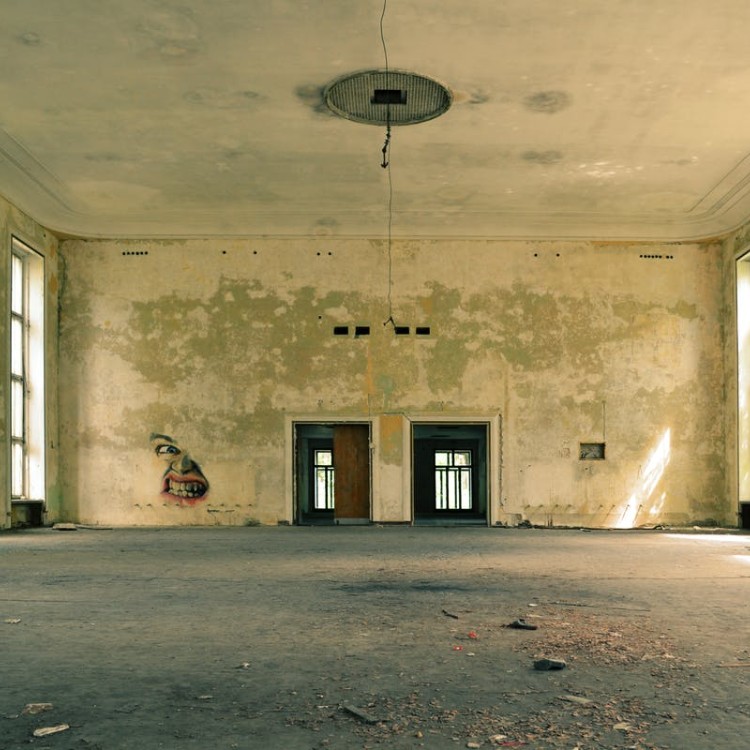Most first time buyers want a move-in ready home that won't require extensive renovation efforts. But some crafty individuals imagine buying a home they can fix and mold into something uniquely their own.
There are some advantages to doing so. You can:
- personalize aspects of the home exactly to your preferences
- find a home within a more modest budget
- and there's always the appeal of increased equity that can come with updates.

Is Buying a Fixer a Safe Investment?
It depends. Despite the potential benefits, buying a fixer-upper isn't for everyone. Most people in a position to successfully renovate will have prior homeownership experience, excess cash or liquid assets, or some serious handiwork chops.
What if You're a First-Time Buyer?
If the thought of fixing up a dilapidated house appeals to you and it's your first go-round buying purchasing a home, be sure you know what you're getting into before you sign the papers.
Before you can decide if buying a fixer-upper is a strategy worth pursuing as a first-time buyer, you need to know if it's even an option.
Consider Your Financing
The type of financing you qualify for can determine whether buying a fixer is even in the cards for you. If you are eligible for a conventional loan, you will have more options when choosing the quality of the home you buy.
If you plan to use a government loan to finance your home, you'll be subject to a stricter set of rules governing the condition of the home you choose. FHA loans can't be used to buy homes that are less-than-functional and safe (unless you're utilizing a 203K rehab loan - more on that later), so you'll be limited to cosmetics and home improvement type 'fixes,' rather than major structural issues.
Calculate Your Budget
Hopefully, you've already asked yourself the important financial questions all first time home buyers should ask and have your down payment in order. The next step is to calculate how much money you will have available to spend on renovations after you buy the house and how you'll obtain the necessary funds if you don't have them saved already.
You don't want to find yourself in over your head before you even get your project off the ground, so be aggressive when you determine your budget for the remodeling projects you're planning.
Leave Wiggle Room— Especially if You Don't Have a Construction Background
When you consider different homes, be realistic about which ones have room for meaningful improvement. Look for homes that need affordable repairs or renovations, which will most likely provide a return on your investment. Try to avoid tackling anything structural unless you've got a solid background in construction.
Professionals versus DIY
Who's going to do the physical work on this house?
Many buyers overlook this critical question, and it comes back to bite them when it's time for action. One choice isn't better than the other, but both require a lot of forethought and the weighing of pros and cons.
Hiring a professional contractor to remodel
There are several benefits to hiring a professional contractor for your remodel.
Professionals are more likely to perform quality work. They have the requisite expertise to do the job correctly and require vetting to ensure you don't end up with low-quality craftsmanship or high costs.
Consider the size of your project. Are you adding entire rooms or moving walls? If you don't have the experience or time to pull permits for a big project, consider a general contractor who can handle these items for you. General Contractors outsource specialty work to subcontractors, such as plumbers and electricians, but tend to cost more since they're managing the project and people for you.
Ask around and review businesses online, but remember that the prettiest website won't always represent the best contractor. These are busy, hands-on professionals who are primarily focused on their work, and often spend little on marketing.
Personal referrals will usually be your best bet when searching for contractors to bid your remodel job.
Going the DIY Route
DIY can save you money and allow you more control over the process, but it can also cost more in the long run if mistakes occur. It will also take significantly longer to make progress if you aren't able to devote your full-time attention to your project.
Pinterest and popular HGTV home improvement shows make it look like home improvement projects are simple, quick, and affordable. Anyone can do it, right?
Don't be fooled.
The price tag, timeline, and specialized skills required to complete many seemingly easy DIY home improvement projects are often much more significant than they appear to be.
Remember, this is your first home and one of the most substantial investments you'll make in your life. Unless you feel 100% confident in your abilities (and have considerable patience), consider simple cosmetic improvements for the DIY feel and leave the heavy lifting to the professionals.
Flipping a Home is Not Easy Money
It's not wise to bet the farm on your first home and assume you can flip it to move up the housing food chain more quickly than traditional appreciation might allow.
That's not to say you can't increase your equity with some well thought out improvements, but approaching first purchase thinking you'll flip it for a hefty profit is a big gamble.
It's easy to slip into a landslide of spending once you start renovating, and improvements may not translate into the equity you hoped they would.
Improving a home can absolutely build equity, but it's important not to underestimate the cost of repairs. Renovation project costs can add up quickly, and it's common—even for experienced do-it-yourselfers—to unintentionally exceeded the budget before project completion.
Beware hidden damage
One serious risk when buying a property with visible damage is finding even more invisible damage once you start. A buyer will often take inventory of obvious problems, like paint and flooring, only to discover additional issues that require repair beneath the obvious ones.
Problems like termites, water damage, asbestos, mold, foundation issues (and so many more) are all incredibly difficult to identify before you begin peeling back the layers. A thorough pest and overall home inspection are an absolute must if you plan to buy a less than perfect home, but remember that they aren't foolproof.
If you buy a house knowing it needs a lot of work, odds are you'll discover even more things that need fixing along the way. Bet on it, and account for the unknown when you determine your budget.

The Psychology of Renovating
So, you've checked all the boxes and feel confident taking on your first renovation project. But have you considered the emotional impact a remodeling job can have?
Do not underestimate the long-term toll a home remodel can take on a person (or entire family), particularly if you plan to live in the home you're repairing.
It's easy to romanticize the process before it begins, but once you're in it...well, you're in it.
If you live in the house while you remodel, the mental exhaustion can be overwhelming, and there will inevitably be days when you wonder if you've made the right call.
It will be loud and dusty, things will get broken, you may not always have access to a working toilet, and it will probably take longer than anticipated.
It won't matter, though, because there's no going back. Once you start, taking things apart, you have to put them back together.
Families with children should take particular caution here. The additional stress of a construction zone planted squarely in the living room or kitchen can prove extremely stressful...and dangerous.
The Bottom Line for First-Time Buyer Fixer-Uppers
The truth is, it's not always a bad idea to fix up a home in need of a little TLC. However, it's always bad to jump headfirst into a big home renovation project without considering the personal and financial risks that come with the territory.
If your dream is to create your dream home rather than buy it as-is, do all the research you possibly can—then maybe do a little more. Additionally, consider buying your first home move-in ready, learning the ropes of homeownership, and then undertaking a renovation-style project on your next home.
Don't be afraid to conclude that a house in need of substantial improvement isn't for you, no matter how interesting or romantic the idea may seem.
Renovating Through Your Loan
If, after reading this, you still want to try renovating a house but don't have the cash for a down payment, closing costs, and renovations, there are options. FHA and Conventional avenues both offer renovation loans.
These products allow you to finance repairs and renovations through your loan, severely reducing your out of pocket cash.
The caveat with these products is that the work needs to be done by licensed contractors, and you need to make up your mind on what exact renovations you'll attempt in a short timeframe.
These are great products for the right buyer and can be a tremendous asset when trying to get into a neighborhood at the top of your budget. If you're interested in learning more about renovation loan products, contact a mortgage advisor for details.







.png)


